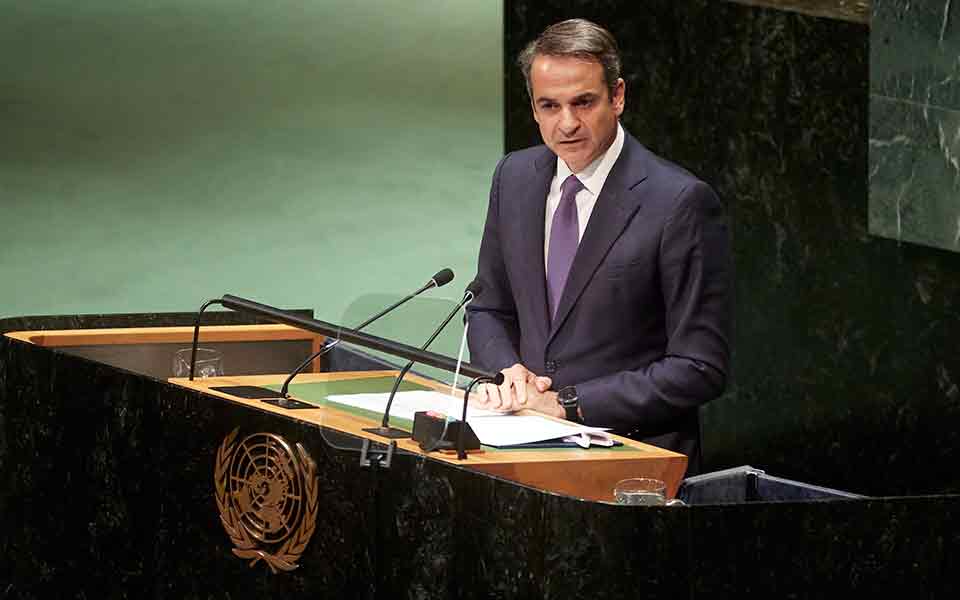The international view: Is Greece now a bona fide option for foreign investment?

Last week Prime Minister Kyriakos Mitsotakis made his first visit to the United Nations in New York with a clear message: Greece is open for business again.
As the UK lurches from one Brexit catastrophe to another, with no apparent end to the saga in sight, it could do worse than look back to where Greece was almost a decade ago.
With the cacophony surrounding the UK’s withdrawal from the European Union, many have forgotten the massive shock that hit the Greek economy back in 2010, when the country found itself unable to borrow on financial markets and was forced to seek a bailout from the International Monetary Fund and the eurozone. Back then, Greece was facing ruin as the economy plummeted and Grexit loomed. But, as Britain faces its own Euro-crisis, Greece’s experience offers hope.
In fact, the UK government should be increasingly looking at Greece as an important business partner as it explores new trade deals following its exit from the EU.
Foreign business is encouraged by early soundings from Mitsotakis. After years of austerity, the new prime minister’s assertion that the lifting of capital controls was a necessary condition for attracting investments and for growth has buoyed interest in Greece as a trading partner. As Mitsotakis said in a speech at the Thessaloniki International Fair this September, Greece is no longer the black sheep of Europe, with investor confidence in Greek bonds higher than at any time in the past 10 years.
The most recent economic figures, published in September, showing that Greece’s economy grew by 1.9 percent in the second quarter of 2019, will give a further boost to international investor confidence. In stark contrast to other bailed-out EU states, the Greek economy is on course to grow by 2.2 percent – an unimaginable expansion considering GDP contracted by more than 25 percent during the economic crisis. Compare that to the UK, where the British Chambers of Commerce last week forecast British economic growth will slow to 1.2 percent this year and 0.8 percent next year, down from previous predictions of 1.3 percent and 1 percent respectively.
Under Alexis Tsipras’ government, several large investments proposed by foreign groups stalled, but Mitsotakis says he will make it a priority to unblock a 1.5-billion-euro Canadian-owned gold-mining project in northern Greece and an 8-billion-euro scheme led by Greek and Gulf investors to redevelop the former Athens airport at Elliniko. Pharmaceuticals company Pfizer is another giant investing in the country. Hines, a US property company, has just completed its third major investment in Greece this year and has also set up a joint venture with National Bank of Greece to redevelop a major shopping mall.
So the door is open to international investors, and it’s a relatively untapped opportunity for UK companies. According to Enterprise Greece, all the UK’s main competitors are ahead of it in terms of exports to Greece. Germany was the number one exporter to Greece in 2018 with 5.8 million euros’ worth of exports. Also in the top 10 were Italy, Russia, the Netherlands, France and Spain. Meanwhile, in terms of broader foreign domestic investment, the UK is also outpaced by its rivals, with Germany accounting for 20.8 percent of overall FDI, followed by Luxembourg, the Netherlands, Switzerland and France.
A number of UK companies are already active in Greece, including Vodafone, Dixons, Marks & Spencer, Unilever, GlaxoSmithKline, British Airways and Astra Zeneca. McBains, too, has been involved in a number of private-public partnership schemes for a number of years, including Greece’s first ever schools PPP project in the Attica region, a 58-million-euro development comprising the design, financing, construction and facilities management of 14 school units hosting more than 3,500 students. We are currently working toward the finalization of a new PPP project: the 58-million-euro Biomedical Research Foundation Academy of Athens.
While uncertainty over Brexit continues to hamper investment in the UK, Greece offers new opportunities. Mirum Hellas has just announced a 410-milion-euro luxury tourism project including the construction of holiday homes in Elounda, Crete, creating more than 350 jobs. Other PPP projects will attract further international investment. The Ministry of Development has approved 11 projects of a total value of 1.5 billion euros, including new schools in Hania and Rhodes and the Crete highway.
What’s more, while its economic turnaround may be new, Greece’s location as the geographical hub of Southeastern Europe hasn’t changed, making it a key strategic link for accessing the markets of the Balkans, the Black Sea, Eastern Europe and Eastern Mediterranean regions.
If there is one area prospective foreign investors will be looking at closely, it’s what the new PM will do in terms of cutting red tape. Greece is ranked 72 among 190 economies in terms of ease of doing business, according to the World Bank’s latest annual ratings. That mid-table ranking will have to improve if it is to attract the big international players. Foreign investors will be encouraged, therefore, by the new fast-track process – the Strategic Spatial Planning of Strategic Investments – that will approve the planning of new large developments of strategic importance.
Spending reform, attracting foreign investment and restarting stalled infrastructure projects must be addressed quickly if Greece is to reduce its reliance on tourism and modernize its economy. In New York last month and since his election victory, Mitsotakis has already begun to make the right noises. It may be early days, but the international verdict is so far, so good.
Anthony Coumidis is a commercial director at McBains, a leading consulting and design agency specializing in property, infrastructure and construction with operations in the UK and Europe, and is managing director of its Greek business.






